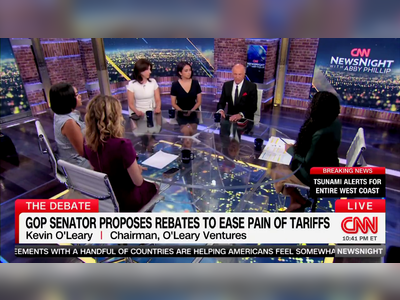
Hungarian Banks Challenge Constitutionality of Interest Rate Cap
Major banking institutions seek repeal of government-imposed interest rate freeze on residential loans.
Several members of the Hungarian Banking Association have approached the Constitutional Court, requesting it to declare the residential interest rate cap, known as 'kamatstop', unconstitutional.
The institutions involved include OTP Bank Nyrt., OTP Jelzálogbank Zrt., Erste Bank Hungary Zrt., K&H Bank Zrt., and Raiffeisen Bank Zrt.
They argue that the decree concerning the interest rate cap and its extensions interferes retrospectively in private legal relations without constitutional justification, asserting that such action is unnecessary and disproportionate.
In their statement, they recalled that in 2021, the government introduced the interest rate cap citing the COVID-19 emergency.
Under this regulation, banks can only apply a capped interest rate of 2.02%, corresponding to the three-month BUBOR rate as of October 27, 2021, regardless of the terms of contracts already concluded.
Moreover, banks have been prohibited from later claiming any interest rate differences that were previously part of contractual agreements.
The measure was later expanded to cover residential financial leasing contracts and non-subsidized mortgage loans with fixed interest rates for periods of up to five years.
Despite the end of the COVID-19 emergency, the government has continued to extend the interest rate cap.
The Hungarian Banking Association pointed out that a further extension was made for the interest cap, which initially was set to end on December 31, 2024. This extension occurred even though the emergency situation related to the pandemic was no longer in effect, leaving the chargeable interest rate unchanged despite a rising interest environment.
The latest extension, declared by the government, pushed the effective duration of the cap to June 30, 2025, even as the inflation rate moderated, dropping from 18% to 6.5% at the policy interest rate level.
The banks contend that the interest rate cap poses significant economic, legal, and ethical concerns.
They highlight that regulatory and supervisory authorities had previously informed clients about the risks associated with variable-rate mortgages, offering options for clients to fix their interest rates, a choice that some clients had exercised.
The institutions involved include OTP Bank Nyrt., OTP Jelzálogbank Zrt., Erste Bank Hungary Zrt., K&H Bank Zrt., and Raiffeisen Bank Zrt.
They argue that the decree concerning the interest rate cap and its extensions interferes retrospectively in private legal relations without constitutional justification, asserting that such action is unnecessary and disproportionate.
In their statement, they recalled that in 2021, the government introduced the interest rate cap citing the COVID-19 emergency.
Under this regulation, banks can only apply a capped interest rate of 2.02%, corresponding to the three-month BUBOR rate as of October 27, 2021, regardless of the terms of contracts already concluded.
Moreover, banks have been prohibited from later claiming any interest rate differences that were previously part of contractual agreements.
The measure was later expanded to cover residential financial leasing contracts and non-subsidized mortgage loans with fixed interest rates for periods of up to five years.
Despite the end of the COVID-19 emergency, the government has continued to extend the interest rate cap.
The Hungarian Banking Association pointed out that a further extension was made for the interest cap, which initially was set to end on December 31, 2024. This extension occurred even though the emergency situation related to the pandemic was no longer in effect, leaving the chargeable interest rate unchanged despite a rising interest environment.
The latest extension, declared by the government, pushed the effective duration of the cap to June 30, 2025, even as the inflation rate moderated, dropping from 18% to 6.5% at the policy interest rate level.
The banks contend that the interest rate cap poses significant economic, legal, and ethical concerns.
They highlight that regulatory and supervisory authorities had previously informed clients about the risks associated with variable-rate mortgages, offering options for clients to fix their interest rates, a choice that some clients had exercised.
AI Disclaimer: An advanced artificial intelligence (AI) system generated the content of this page on its own. This innovative technology conducts extensive research from a variety of reliable sources, performs rigorous fact-checking and verification, cleans up and balances biased or manipulated content, and presents a minimal factual summary that is just enough yet essential for you to function as an informed and educated citizen. Please keep in mind, however, that this system is an evolving technology, and as a result, the article may contain accidental inaccuracies or errors. We urge you to help us improve our site by reporting any inaccuracies you find using the "Contact Us" link at the bottom of this page. Your helpful feedback helps us improve our system and deliver more precise content. When you find an article of interest here, please look for the full and extensive coverage of this topic in traditional news sources, as they are written by professional journalists that we try to support, not replace. We appreciate your understanding and assistance.










